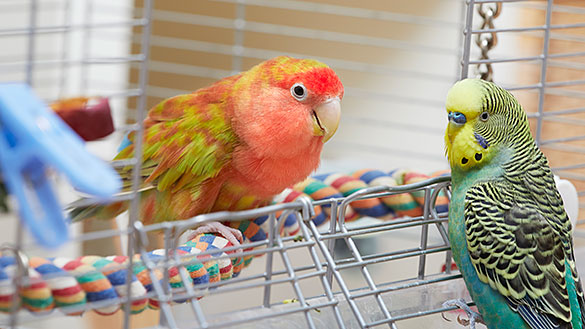An outbreak of a bacterial respiratory infection that most often affects birds has killed five people in Europe, the World Health Organization (WHO) warns. “Parrot fever” or Chlamydia psittaci is a type of bacteria that often infects birds. Less commonly, these bacteria can infect people and cause a disease called psittacosis.
According to a report by Live Science, the bacterium is spreading in Europe. During 2023 and the start of 2024, Austria, Denmark, Germany, Sweden, and the Netherlands have reported an “unusual and unexpected increase” in cases of so-called parrot fever, beyond what’s been seen in previous years, the WHO said in a statement Tuesday (March 5). In all, the illness has affected almost 90 people, with five deaths reported among them.
Humans can contract psittacosis by inhaling airborne particles containing C. psittaci, but human-to-human transmission of the disease is very rare, with only a handful of cases ever reported. Instead, most people develop psittacosis by inhaling particles that waft from the breath, poop, or feather dust of infected birds, especially pets such as parrots, finches, or canaries. Those who come in contact with birds are more likely to become infected with psittacosis.
Psittacosis typically causes mild illness in humans. Its symptoms resemble those of the flu — such as fever, chills, headache, and dry cough — and usually appear within five to 14 days after a person is exposed to the bacteria. Antibiotics effectively cure the disease if they’re used early in the course of infection, and they help prevent serious complications, such as pneumonia and inflammation of the heart. –Live Science
The use of antibiotics can reduce the death rate of psittacosis from between 15% and 20% to just 1%.
The five countries affected by the current psittacosis uptick have reported far more cases than usual. Some of these cases were suspected, based on symptoms, and others were confirmed with various diagnostic tests. Notably, most cases involved contact with infected wild or pet birds. But in some cases, recent contact with birds wasn’t reported at all, which is a concern for a possible wider problem.
HOW TO PREPARE YOUR HOME (QUARANTINE) FOR A PANDEMIC
Read the full article here




